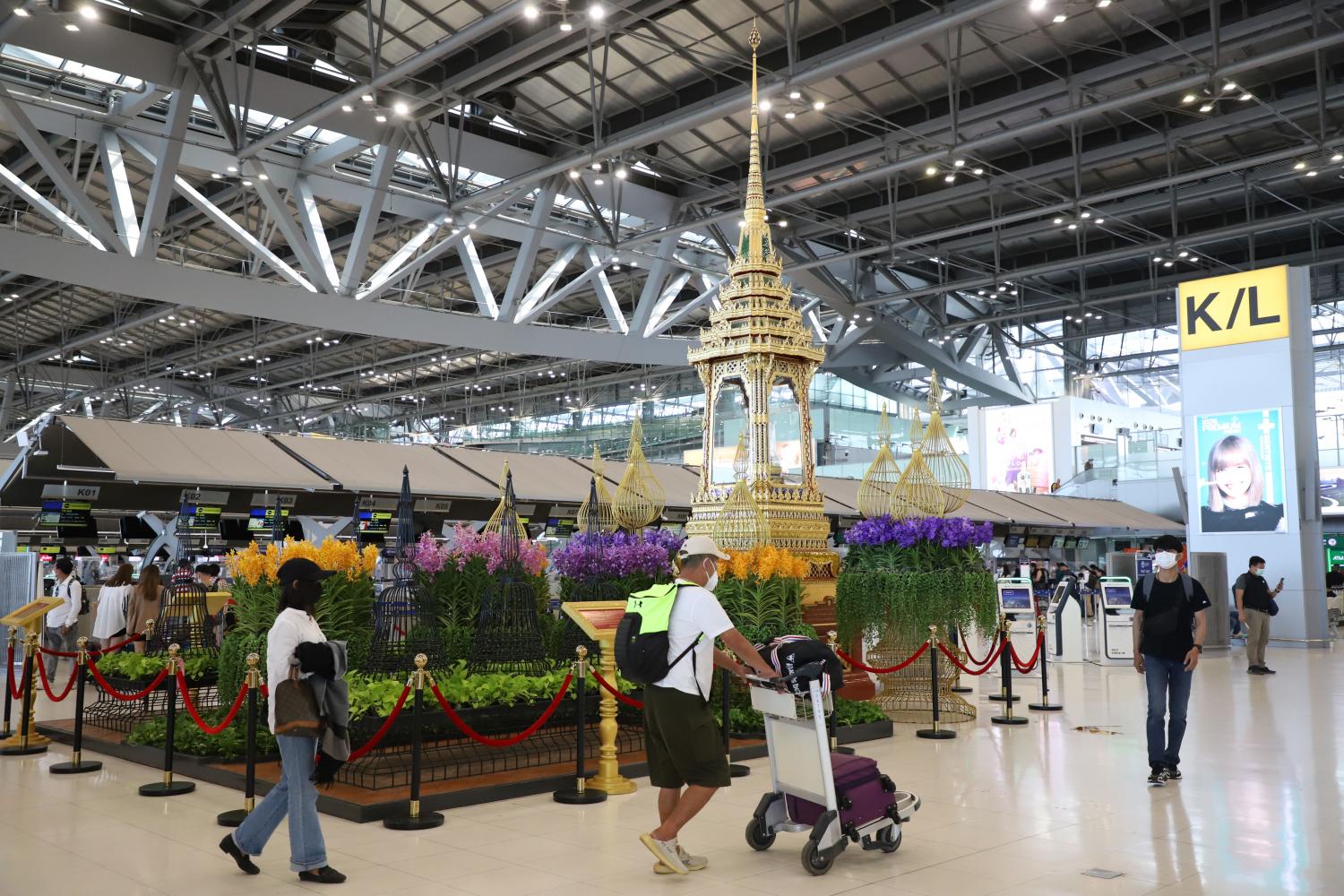
An overload of tourists and an overwhelmed Thai healthcare system are issues to monitor next year after China fully reopens, with up to 500,000 tourists projected to start travelling during Chinese New Year.
Even though the tourism sector applauded the announcement from Beijing that it is lifting most entry requirements from Jan 8, except for a pre-arrival Covid-19 test, tourism operators were concerned about an imbalance between supply and demand.
Tourism Authority of Thailand (TAT) governor Yuthasak Supasorn said China's reopening would lead TAT to revise its target for foreign arrivals from 20 million to more than 25 million in 2023.
An influx of Chinese tourists, who have been unable to travel overseas for three years, may flock to Thailand during the Chinese New Year holiday at the end of January, with the possibility of 500,000 tourists arriving during this period and 3-5 million Chinese for the whole year, he said.
Mr Yuthasak said positive signs were noticed immediately, as 15 minutes after the announcement Beijing-based online travel platform Qunar saw air ticket searches surge by seven times, with Thailand the most popular destination, followed by Japan and South Korea.
The travel platform under Tongcheng Travel also reported an 850% increase in searches for international routes, mainly driven by users in Beijing, Shanghai and Guangzhou.
Mr Yuthasak said the TAT and the private sector will meet today to discuss preparations and evaluate the situation as China's major shift in its border policy after three years requires a recalibration.
He said if the private sector has any concerns about the Thai healthcare system, the TAT will take these questions to the Public Health Ministry to ensure the healthcare system is ready.
"The most important factor is not how many Chinese will return to visit Thailand, but helping the country avoid another Covid wave and keeping Thais safe," said Mr Yuthasak.
Beijing stopped announcing Covid infection numbers this week after the country reportedly had more than a million daily cases, according to some media outlets.
He said the return of the Chinese tourism market may gradually help sort out the problem of overcapacity as investors or operators will be willing to fully invest in employment and business expansion once this segment rebounds.
Sisdivachr Cheewarattanaporn, president of the Association of Thai Travel Agents, said increasing flight capacity should be the first priority for Thailand.
Moreover, Thailand still has to monitor how Beijing helps facilitate passport renewals for its citizens, he said.
Mr Sisdivachr said China might also need to signal which market it would like to promote for outbound tourism, as there is no update on lifting the tour group suspension at the moment.
"The end of quarantine is good news from China, especially for small hotels in Thailand, but the pace of recovery will be gradual and depend on many factors," said Marisa Sukosol Nunbhakdi, president of the Thai Hotels Association.
Mrs Marisa said limited flights connecting to China will be an obstacle during Chinese New Year on Jan 22, while a labour shortage for hoteliers remains, as many workers left the industry for other jobs.
She said hotel operators have to be more active in recruiting staff and be prepared to pay higher operational costs from both employment and electricity charges as a result of growing consumption.
Mrs Marisa said even though Chinese tourists could help generate income for various segments and destinations, such as those in the North, the tourism industry should learn not to be overly dependent on a single market as happened in the past, when the Chinese accounted for 25% of the overall inbound market.
AIRPORT CONGESTION
Tassapon Bijleveld, executive chairman of Asia Aviation (AAV), said congestion at Suvarnabhumi airport usually occurs during peak hours as most airlines cannot increase flights to cater to growing demand.
He said most international flights were fully packed with a load factor of more than 90%, higher than the average of 85% during normal periods, causing congestion at immigration and baggage claims when several flights land during the same hour.
Mr Tassapon said Airports of Thailand already tried to solve this problem by increasing manpower, but it needs a more serious approach if Chinese travellers come back in droves next year because insufficient capacity for ground handling services also results in flight delays.
Nuntaporn Komonsittivate, head of commercial operations at Thai Lion Air, said the airline could not commit to expanding flights to the mainland in time for Chinese New Year as flight operations require notice of at least a month.
Moreover, the airline would have to rotate aircraft from its existing fleet of 11 jets to fly to China at night, as the airline is awaiting new airplanes, said Ms Nuntaporn.
Santisuk Klongchaiya, chief executive of Thai AirAsia, said whenever the Civil Aviation Administration of China officially allows international airlines to resume normal operations, the airline will immediately expand services to the country, which could be in time for the upcoming Chinese New Year holiday.







